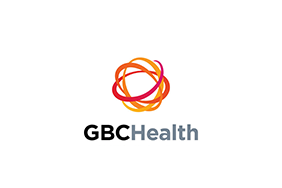FHI, PSI to Help Shape Public-Private Sector Collaboration on Diseases
Global Business Coalition on HIV/AIDS, TB and Malaria announces its first NGO members
Published 12-07-09
Submitted by GBCHealth
For the first time, major organizations from civil society are joining forces with a coalition of leading businesses to collaborate in the fight against HIV/AIDS, TB, malaria and other global health issues.
Family Health International and Population Services International, two of the most active and effective global health organizations in the fight against deadly epidemics, have long been effective partners with the private sector. They now have formalized these ties by becoming the first non-corporate members to join the Global Business Coalition on HIV/AIDS, TB and Malaria.
In their role, they will help to steer the organization's agenda-setting, actively working with the private sector to develop more effective means of program coordination and collaboration. They also will contribute to the Coalition’s efforts to foster knowledge co-creation and information exchange among its membership, part of GBC's strategy to close gaps and maximize performance in the drive to defeat disease.
"GBC's role is to make global health action smarter by joining the corporate sector, governments and civil society together in common cause," said John Tedstrom, GBC's President and CEO. "The GBC network includes many outstanding NGOs, and having PSI and FHI formally join as members is another step that will help advance our work. Coalition members will benefit from their knowledge as program implementers, as well as their insights from the front lines of the fight."
"PSI is honored to be the first non-corporate member to join the GBC," said Karl Hofmann, President and CEO of PSI. "PSI uses markets and private sector speed and efficiency to reach poor and vulnerable populations, enabling them to lead healthier lives. Social marketing has helped us become the health sector implementing partner of choice for many developing country governments. The GBC is a perfect forum for PSI to share with and learn from private sector companies that aim to make a difference against AIDS, TB and malaria."
Albert Siemens, Chairman and Chief Executive Officer, Family Health International, stated, "FHI is honored to join the Global Business Coalition. We look forward to the endless opportunities where global health and global business intersect in our common battle against the diseases that are ravaging much of the world. We support GBC's effort to systematize and streamline the process of putting the corporate assets and business acumen together with the on-the-ground expertise of NGOs like FHI to achieve our shared objectives. Together, I am confident we can find even more innovative and sustainable solutions to empower the world's most vulnerable people."
Family Health International
Family Health International is a public health and development organization working to improve the lives of the world's most vulnerable people. Our 2,500 staff work in 55 countries conducting research and implementing programs that advance public health and build local capacity to address development problems. Since 1971, Family Health International has been a global leader in family planning and reproductive health and, since 1986, in the worldwide response to HIV/AIDS. Our research and programs also address malaria, tuberculosis, and other infectious and chronic diseases. Our partners include US and international agencies, governments, foundations, research institutions, community and faith-based organizations, individual donors, and several corporate Global Business Coalition members. For more information, go to www.fhi.org.
Population Services International
PSI is a leading global health organization with programs targeting malaria, child survival, HIV and reproductive health. Working in partnership within the public and private sectors, and harnessing the power of the markets, PSI provides life-saving products, clinical services and behavior change communications that empower the world's most vulnerable populations to lead healthier lives. To learn more, visit www.psi.org.
Global Business Coalition on HIV/AIDS, TB and Malaria
The Coalition is an extraordinary alliance where business, government, and civil society join forces-a collaboration that's closing gaps and maximizing performance in the drive to defeat disease. The Coalition’s nearly-200 member companies are at the forefront of a movement that is speeding the day when the devastation caused by HIV, TB and malaria will end.
The core idea is simple: Apply business' capabilities, influence, and other assets, and victory will come sooner than if the non-corporate sector is left to do the job on its own. For member companies committing assets to the fight, GBC delivers well-crafted, cost-effective ways to get focus, find partners, improve effectiveness, and boost ROI. Not every member is active on the front lines, but every member wants to help us win.
GBC represents the private sector to the Global Fund to Fight AIDS, Tuberculosis and Malaria. The Coalition has offices in New York, Paris, Johannesburg, Beijing, Nairobi and Moscow. For more information visit www.gbcimpact.org.

GBCHealth
GBCHealth
GBCHealth is the preeminent organization focused on business engagement in support of meeting global goals for health. Its vision is health equity and a global business community that contributes its assets, skills, influence and reach to create a healthier world for employees, their families, and communities. GBCHealth works with companies worldwide and with the United Nations, governments, academia, civil society & others. In September 2022, GBCHealth launched future united, a global initiative harnessing the power of the private sector to fight for - and achieve - health equity, tackle the impact of climate change on health, and address antimicrobial resistance and future pandemics.
More from GBCHealth

